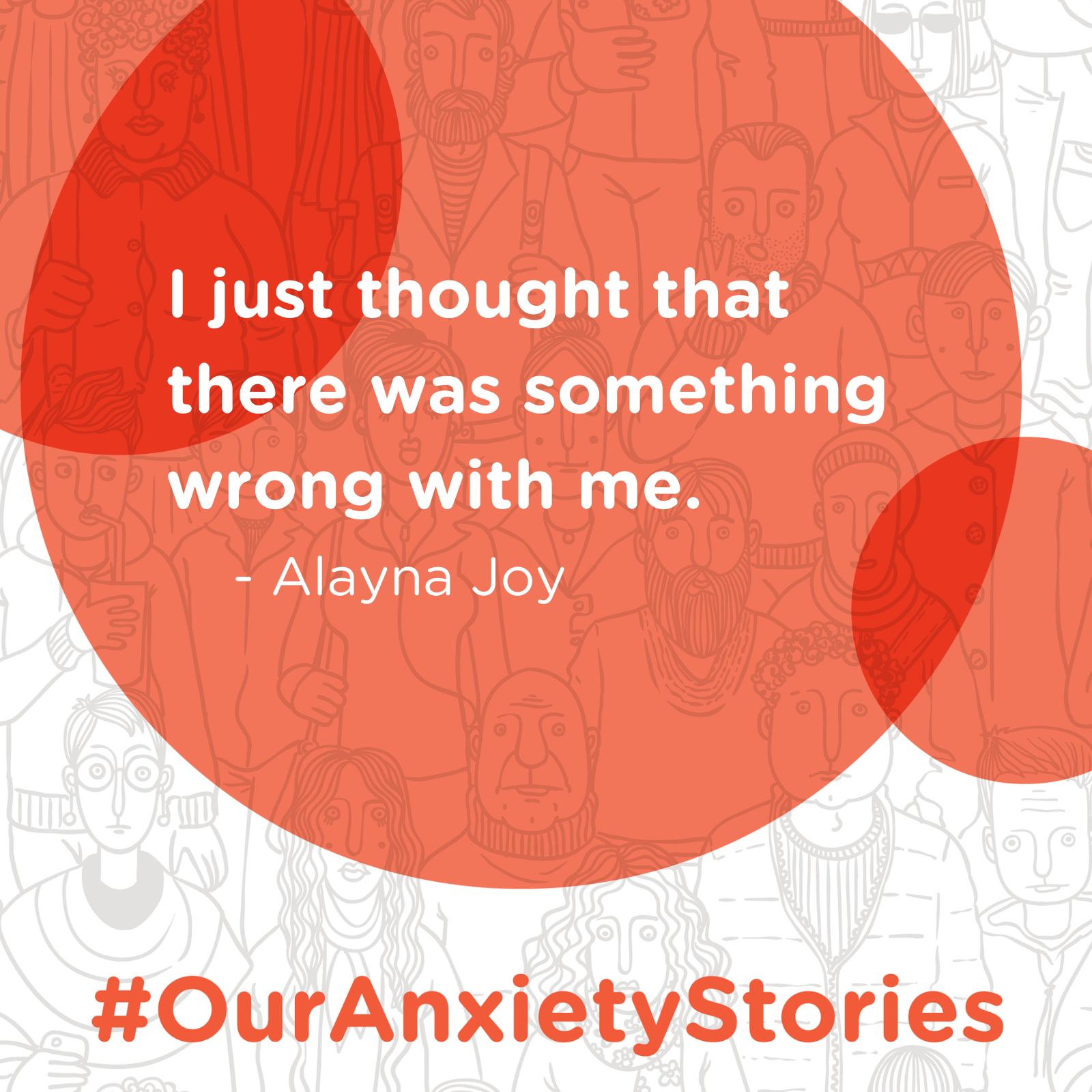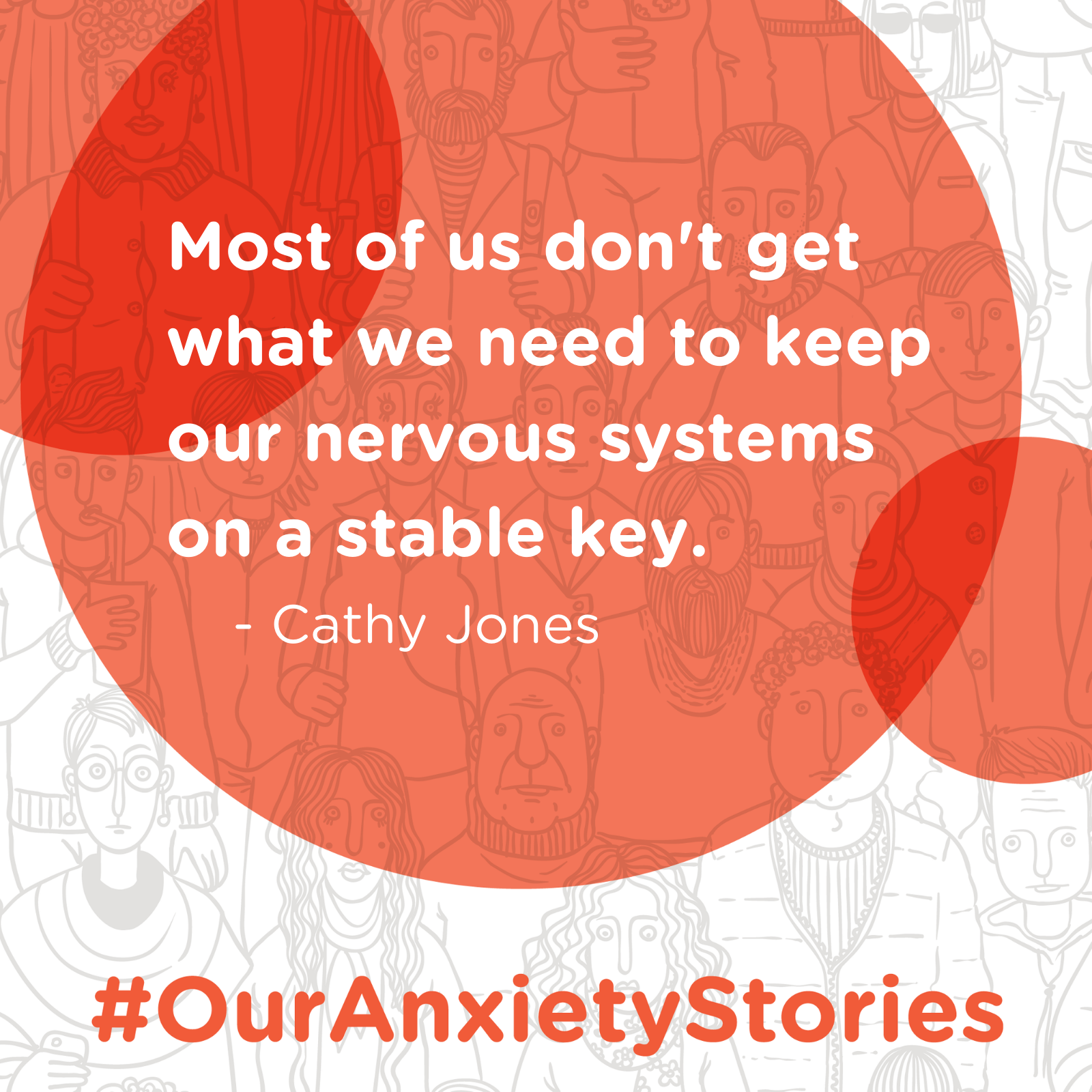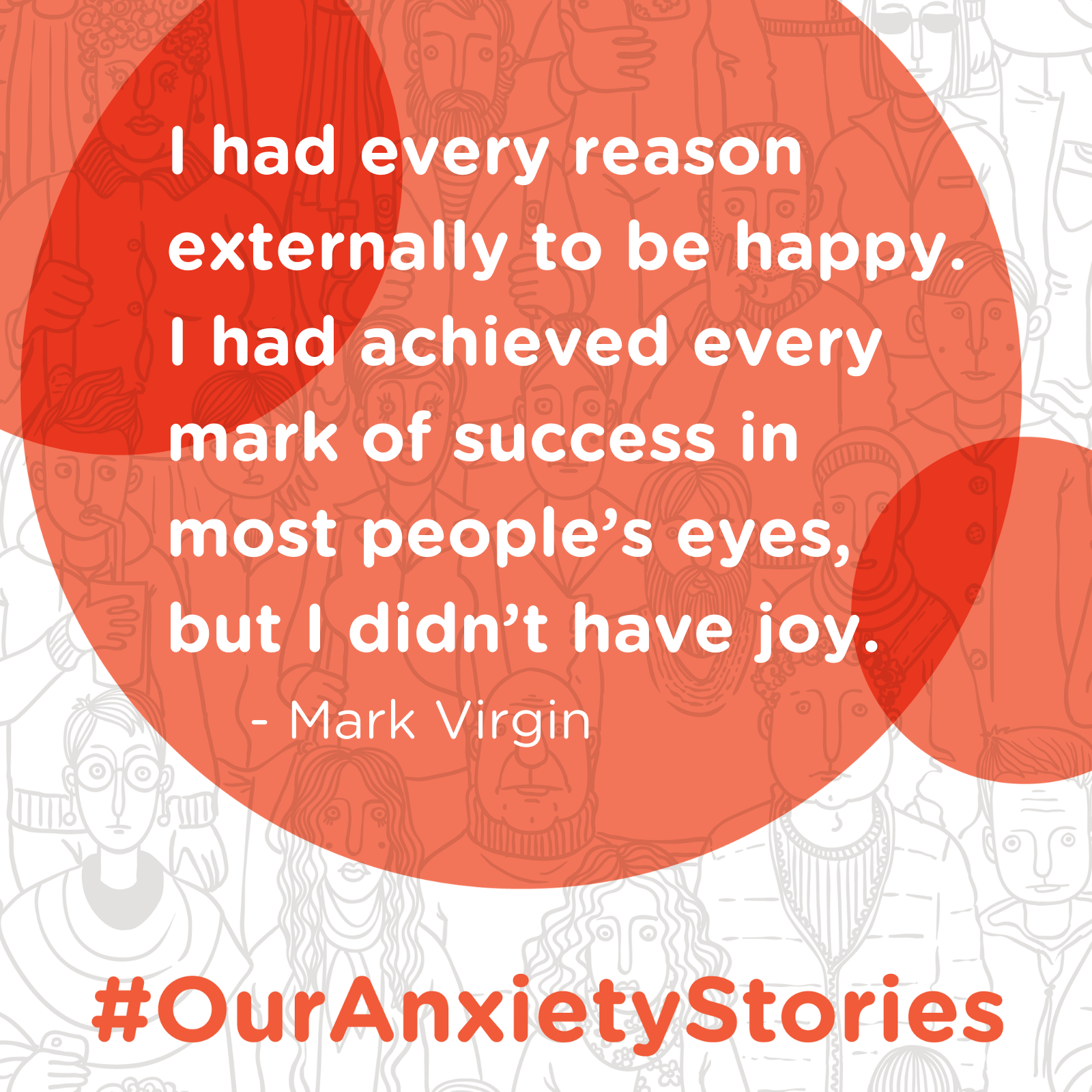Episode Transcript
Speaker 1 00:08 You are listening to our anxiety stories, the anxiety Canada podcast with Jon Beekman. Check out anxiety canada.com for more totally free anxiety resources, including our app shift at CBT
Speaker 0 00:22 <inaudible>. I love known for most of my life.
Speaker 2 00:27 It's a Andrew Scott drummer from Sloan. Andrew, how's it going?
Speaker 3 00:32 Going on rights on. How are you doing?
Speaker 2 00:33 I'm doing fine. It's great to hear your voice. It's been a little while.
Speaker 3 00:36 Good to hear yours too.
Speaker 2 00:38 Yeah, yeah. I, I appreciate you coming on like a, it was interesting because to give people a little background, uh, we, we went to high school together. It might open on a couple of double dates together. Yeah. And then we went to, ended up at our college together.
Speaker 3 00:52 That's right.
Speaker 2 00:53 And then we played in rock band band Sloan together. Is that right?
Speaker 3 00:57 That's right.
Speaker 2 00:57 No, I will.
Speaker 3 00:59 Anxious history together.
Speaker 2 01:01 We sure we sure do. I actually didn't know, you know, until I messaged you like a month ago or so. I didn't, you know, it didn't really Dawn on me that you might have a, I in your answer was a little bit ambiguous. You know, that you've had experience with anxiety. I don't know if that's you personally or people in your life, what, you know, what is your anxiety story?
Speaker 3 01:21 Well, I mean, where does one begin? There's too many to to nail it down to one. Yeah. I mean, I, I like everybody. I have it as a, it's a survival mechanism, right? Like does it, does it consume you or do you have some kind of control over it? There were time, there have been times in my life for sure, where if it felt like it was consuming me. Yeah. It hasn't been like that for quite a long time. Yeah. Yeah. Um, because I know how to recognize it and identify it and take steps to, uh, to mitigate it. Spinning out of control.
Speaker 2 02:00 Did you experience it as a kid?
Speaker 3 02:04 Uh, you know, not as a kid. I first, first time I experienced it really was, uh, I mean, I guess I was a kid. I was like 19 years old. Yeah. And I was working at a bar in Halifax called cabbage town. I was a DJ.
Speaker 2 02:17 Right, right. I remember that.
Speaker 3 02:20 And uh, one night I was basically, I just started, you know, feeling like I was at in tunnel vision mode.
Speaker 2 02:28 Right.
Speaker 3 02:29 Yeah. And walked out and thought I was basically having a heart attack.
Speaker 2 02:35 Is that right? So that was kind of like a panic attack, I guess you'd call it
Speaker 3 02:39 full on panic attack. Yeah.
Speaker 2 02:40 Interesting. And so, I mean that's happened to me before too, where it seemingly just, you know, my first one, my first one was triggered, like my first panic attack that I really remember was when I was little and I, and I was watching TV and this commercial came on for this kind of a, it was a movie that was, uh, that was, it was, um, basically, uh, Christian message kind of movie called the late great planet earth and it, and it talked about prophecy and all that stuff. You know, that cause, cause you and I, we, we were under the, uh, nuclear button, right. That was what we were, we would be afraid of, or I was at least, I remember having that sheer panic feeling. I had a, I had a reason for it and I understood that even at that age. But you kind of having one at the age of 19, um, out of nowhere, you know, that must've been pretty, pretty disoriented and elected. Did you have any, did that last long, did you have any after that? Did you question it? What, what was the process afterwards?
Speaker 3 03:34 Uh, the process for me at that time was pretty, uh, pretty undefined. It was a flip. I, that was weird, you know, go to the emerge and basically have a, uh, ER doctor tell you how your anxiety attack, here's a couple of pills that will sleep it off
Speaker 2 03:52 really? And that, and that. And that was the extent of the treatment at that point?
Speaker 3 03:56 Pretty much, yeah. Very, uh, very dismissed. I mean, whatever, you know, it's like, uh, I think that's, if you can, uh, define it in, in one sort of main frame, it's basically, it's you, you're, you feel like you're going to die.
Speaker 2 04:18 Yeah. Oh yeah, yeah.
Speaker 3 04:20 And isn't that the ultimate human fear?
Speaker 2 04:24 It sure is. Hopefully that hopefully that starts to fade with time, but definitely it is. Did she
Speaker 3 04:30 to really, uh, because I fly so often and have done for so many years, I used to really, uh, just turn white and sweaty on planes and then, and then I don't really, I don't really remember what, what point I just sort of told myself, well, I mean, what's the point in uh, winding yourself up into this very ambiguous state? Once that door closes on the plane, whatever happens, what's going to happen?
Speaker 2 05:06 Yeah. That's, that's kind of relinquish. Yeah. Relinquishing that control, you know, anxiety kind of rubs you or I shouldn't say you, but it has robbed me of that kind of feeling of control because like you say, have no idea what's going on. And, and then all of a sudden your environment that you're used to controlling up until that very second is, is just upside down and out of control.
Speaker 3 05:29 Yeah. And this is a very timely, uh, occasion for you to be reaching out to me on this subject because I'm just about to embark on a very large tour with a rock and roll band and I am not mentally, um, prepared for this whatsoever. So I Harbor a great deal of anxiety about what the hell am I doing? Why am I going away for so long? What am I leaving behind? Yeah. Not in terms of material stuff, but my family.
Speaker 2 05:59 Yeah, for sure. Yeah. Essentially you mentioned flying because I didn't have a fear of flying until I had kids and I think our kids are similar ages and then, and then, man, I was afraid to fly.
Speaker 3 06:11 Yeah. It's funny. My kids were, I mean, my son wasn't, was never free to fly. My daughter was, so I felt like I really had to just, I had to be her rock whenever we were on planes together.
Speaker 2 06:22 Yeah. And that would probably in turn help you a little bit too, I guess if it still bothered you at all. Did, uh, did perform,
Speaker 3 06:29 it doesn't, it doesn't at all. Yeah. The, um, I've overcome whatever that was.
Speaker 2 06:34 I didn't, I didn't, I mean, I, I've overcome it, but the reason I've overcome is because I did an online fear of flying course. Oh really? Yeah. Wow. And it actually worked. It was just this free thing and it was like out of desperation because, you know, it's interesting, you know, anxiety, the fear of flying, it's such that just closes your world right off. It's amazing. You know, if
Speaker 3 06:55 there's enough online fear of touring in a rock band,
Speaker 2 06:59 well I think there's an opportunity for you there, you know? But I don't know if you'll have time. It's in here because I thought that about you because I know you've toured a lot in your life and I didn't think about it so much. I didn't think about it in terms of the flying, you know, I wouldn't, I wouldn't get that. I guess I thought about it in terms of a yes being away. Yes. You know, like being in hotels and yes, being stuck with the same, you know, four or five, six characters for that period of time. And then now of course, that you have a family. Yes. Being away from the family, you know, I do all those, you know, you say that you, you've just told me that you, you feel completely mentally unprepared. So how do you get through it?
Speaker 3 07:37 Again, I think it's just surrender, right? I know what I'm getting myself into more or less here. I've done it a million times. Yeah. Um, but I, I don't, when I lay eyes on, uh, on a tour bus, I don't get excited. I just kind of like, I get my hands get sweaty.
Speaker 2 07:55 Yeah.
Speaker 3 07:57 I just basically feel like running in the opposite direction.
Speaker 2 08:00 It's interesting because I, you know, I was on, it was a couple years ago, you guys were doing the tour for a, might've been one court to another. Um, and now you're doing one for Navy blues, I think. Yeah. So I, I did stop in and hung out with you on your tour bus into Nymo British Columbia. Yeah. And, um, when I walked into that bus, um, I saw what I thought was a huge coping mechanism for you, which was you had the whole place wallpapered with magazine cuttings and that was you that did all that.
Speaker 3 08:35 Yeah, yeah. Yeah. Because these buses are like, they're like a dentist's waiting rooms on wheels.
Speaker 2 08:43 Yeah. Yeah. And so does that, do you, do, do you do that because it gives you something to do? Do you do it because it, it, it's your, it makes it your home. What does, what's the, what is the result? Like why does that happen?
Speaker 3 08:57 Well, it's all the above. Yeah. It's a, it just, it takes the dullness off of the, uh, off of the surface that we all have to endure for however many weeks. Yeah. And you know, my, my, here, my anxiety stories are, there's nothing particularly remarkable or, or unique other than their mine. It's not like there's anything special about me because of blah, blah, blah. No, no. Because everybody's got, everybody's got to deal with it.
Speaker 2 09:29 Yeah, for sure. But I mean, you're special in the sense that you are willing to go on air and talk about it. Um, that's something not everybody's able to do.
Speaker 3 09:37 I mean, um, I don't, I don't think there's any, uh, stigma that I attached to it with regards to myself. Yeah. Yeah. And in this day and age, you know, I think that's the best way to, to deal with it is to talk about it.
Speaker 2 09:51 Yeah. I, I felt I have felt more and more strongly, but cause I was pretty closeted about it for awhile. I think a lot of people knew what about me just because I'm like, I was an easy book to read. But, um, but yeah, again, I'm turning to kids. Once I had kids and I started, you know, I'd see them having anxiety reactions. That's when it, well, that, and then that giving me an anxiety reaction, um, that would, that was where it really, yeah. And that's what really turned the tide for me. Like, I wanna I want to speak up about it and be more transparent about it because I, that was my first course of action with the kids was to say, I've been through this my whole life. It's been an interesting process getting ready for this gig because, because they, uh, it's just normal for them. You know what you're working on your anxiety thing. Yeah. Okay. And you know, me messaged my daughter yesterday, you know, I'm nervous about doing this thing to her and she just wrote, you're going to be great, you know, whatever. The emoji that what she through after, I forget now. Yeah. But, um, but yeah. And, and what about in terms of your, you know, with what D does a whole band cope pretty well with the whole thing? Do some cope better than others? Like different personalities?
Speaker 3 10:59 Yeah. I mean, it's literally, it's another family to be a part of and to manage and to contribute to everybody. Everybody's got their, um, there are limitations. Yeah. And everybody's got other things in their home that they've left behind as well to get some very complicated soup. Yeah. It's, it's what we do. Yeah. And the show must go on,
Speaker 2 11:29 I guess so we don't much to your degree in, I mean, you guys are unique. Unique in the sense that you've been together I guess what, since the lady eighties early nineties, right?
Speaker 3 11:39 Yeah. We're coming on 30 years together as a group. Pretty ridiculous.
Speaker 2 11:43 Yeah. That freaks me out because, yeah, I mean, yeah, I remember when you guys kind of became a thing. Wait, you know, 30 years ago it was, yeah, it's, it's, it's just reminding me of my age. That's all. Andrew,
Speaker 3 11:57 me too.
Speaker 2 11:58 Speed. There's one more thing I want to, I want to ask you about because I found it, it's, and I wonder if there's any anxiety around it. Um, you have decided, you had decided, you mentioned this in an IMO, that you are going to become a Toronto firefighter.
Speaker 3 12:14 Well, I'm careful. I'm, I'm trying to become a Toronto firefighter. I mean, I'm, I'm really a, I'm dying for this opportunity and it has not yet come to be an offer for a dog yet.
Speaker 2 12:29 But you're doing, you've been doing all the, all the prep to make that happen.
Speaker 3 12:34 Yeah. I applied formally and very proudly this past January, right. With a, with a legitimate application package. And I, you know, I had to do whatever anybody else would've had to have done. Um, uh, but this opening, this job opening, it opened in January 2nd and it closed just this past June 30th. Wow. So it was a very, very big wide opening. And, uh, I'm just, I'm, I'm trying not to Harbor too much anxiety about the outcome of that because I, I know from firsthand that patience is one of the most important components in this. Um, having said that, yeah, I'm kind of freaking out deep down in <inaudible> because if I
Speaker 0 13:27 <inaudible>
Speaker 3 13:31 thanks for listening to our anxiety stories, the anxiety Canada podcast with Jon Bateman, check out anxiety canada.com for more anxiety resources, including our app mind-shift CBT. And if you like what you hear, please consider making a donation. This podcast is made possible by listeners like you. Until next time.
Speaker 0 13:50 <inaudible>.


